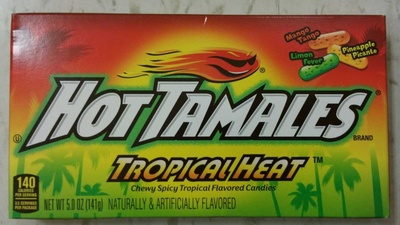
Barcode: 070970474088
Chewy spicy candies
HALAL
📝 Reason: This chewy spicy candy does not list any explicit haram ingredients such as pork, alcohol, or haram E-codes. However, certain ingredients such as ‘natural and artificial flavors’, ‘confectioners glaze’, and unspecified ‘artificial color’ are considered Doubtful for Halal compliance, absent certification or explicit natural/plant sourcing. Islamic scholars recommend avoiding doubt (Quran 5:3). None of the listed E-codes are from the Haram or Doubtful list above, and no meat or animal-origin ingredients are present apart from the possibility of confectioners glaze being insect-based. See IFANCA, Halal Haram, and food chemistry sources for full details.
🏷️ Category: Snacks, Sweet Snacks, Confectioneries, Candies
📄 Certificates: No Gluten, Vegetarisch
Ingredients:
Details
Halal Status of Chewy Spicy Candies
When it comes to enjoying sweets, many consumers are concerned about whether the products adhere to halal standards. Chewy Spicy Candies have been confirmed to be halal, meaning they don’t contain any ingredients from haram sources. This post will further explore the ingredients and clarify their halal status.
Understanding the Ingredients
Let’s take a closer look at the ingredients listed in Chewy Spicy Candies and evaluate their halal status:
- Sugar: Sugar is generally halal as it is plant-based. It’s crucial to note that certain processing methods, such as using animal bone char, might make some sugars non-halal. However, the majority of commercial sugar in markets today is considered halal. (Source)
- Corn syrup: Derived from corn and contains no animal or alcohol derivatives, making it halal. (Source)
- Modified food starch: Typically made from corn, potato, or tapioca, and does not indicate the use of animal or alcohol in production. This ingredient is considered halal. (Source)
- Fumaric acid: A naturally occurring acid most commonly found in fruits. It is often produced synthetically and is regarded as halal due to its plant/chemical origin. (Source)
- Natural and artificial flavors: This is where caution is advised. Without specific details, they can include alcohol or non-halal animal derivatives. The absence of halal certification or clear sourcing makes this ingredient doubtful for halal compliance. (Source)
- Sodium citrate: Generally derived from citrus or made synthetically. When produced without animal-origin enzymes, it is considered halal. (Source)
- Dextrin: This ingredient is derived from starch (plant-based) and remains halal unless made with alcohol or non-halal enzymes, which is highly uncommon. (Source)
- Citric acid: A fermentation product frequently sourced from corn or beet sugar, affirmed as halal by numerous certifiers. (Source)
- Malic acid: Typically found in various fruits or synthetically produced, this ingredient is also acknowledged as halal. (Source)
- Artificial color: This ingredient leads to uncertainty as it can include various dyes, some of which may not be halal (e.g., Carmine/E120). Thus, it is classified as doubtful. (Source)
- Confectioners glaze: Generally sourced from shellac, which is an insect-derived resin. Many Islamic scholars consider it dubious for halal due to its origin. (Source)
- Red #40: This synthetic azo dye is included in halal classifications. (Source)
- Carnauba wax: Sourced from palm leaves, this ingredient is plant-based and halal. (Source)
- Medium chain triglycerides: Typically derived from coconut or palm oils and considered halal unless explicitly referenced as animal-sourced. (Source)
- Yellow #5 (tartrazine): This synthetic dye is also included in halal classifications. (Source)
- Yellow #6: Generally halal unless processed with animal derivatives, which is rare. (Source)
- Blue #1: Recognized as halal in halal classifications. (Source)
Conclusion
In conclusion, while Chewy Spicy Candies contain several ingredients regarded as halal, there are specific elements that introduce doubt, particularly the natural and artificial flavors, confectioners glaze, and artificial colorings. Given that halal certification is absent, this remains a concern for strict adherents to halal dietary guidelines. For individuals navigating halal compliance, it’s advised to seek further details or opt for products clearly labeled with halal certifications.
Stay informed and make choices that align with your dietary values. Your health and beliefs matter!
